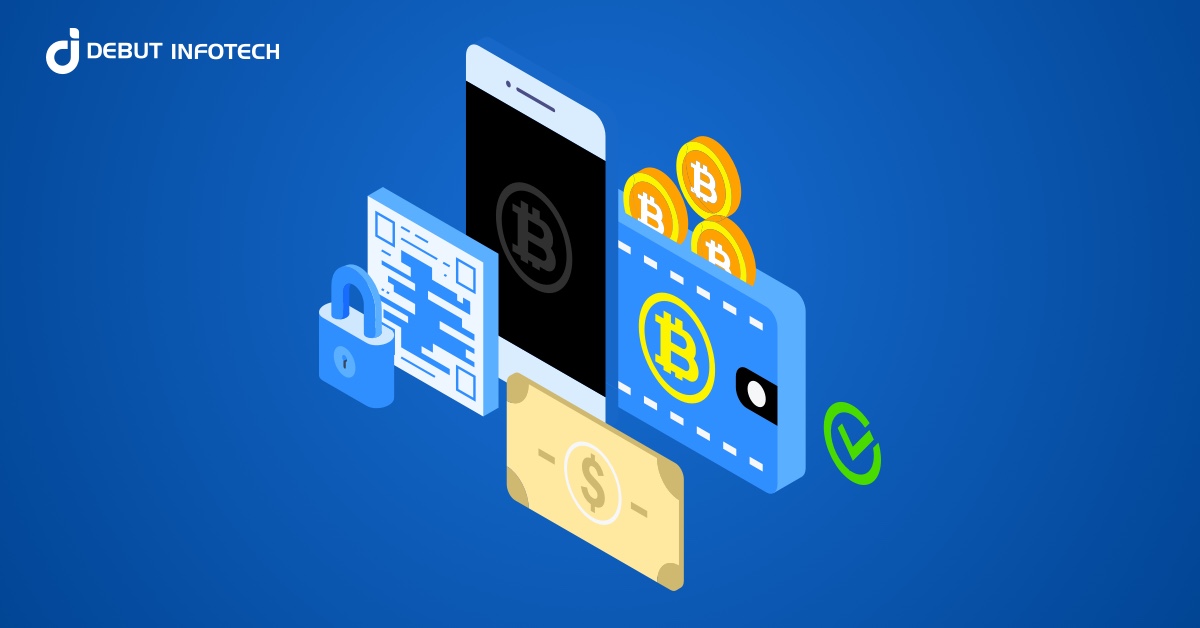The rise of cryptocurrencies has created a robust ecosystem where secure and user-friendly wallets are critical. A cryptocurrency wallet acts as a bridge between users and their digital assets, enabling them to store, send, and receive cryptocurrencies. Whether it's for individuals or businesses, cryptocurrency wallet development services are in high demand. In this blog, we’ll explore what these services entail, their importance, and why businesses should consider opting for customized wallet solutions.
What Are Cryptocurrency Wallet Development Services?
Cryptocurrency wallet development services encompass the creation of digital wallets designed to store private and public keys. These keys facilitate secure transactions and provide users with real-time access to their cryptocurrency balances. Wallets can be categorized into two main types: hot wallets and cold wallets.
- Hot Wallets: Connected to the internet, allowing for instant transactions. These are ideal for everyday usage but are slightly more vulnerable to cyber threats.
- Cold Wallets: Offline storage solutions, such as hardware wallets. They offer enhanced security and are preferred for long-term storage of large amounts of cryptocurrency.
Key Features of a Cryptocurrency Wallet
- Multi-Currency Support: Wallets that support multiple cryptocurrencies allow users to manage various digital assets under one platform, enhancing usability.
- User-Friendly Interface: A well-designed interface is critical for user engagement. Whether it's for mobile, web, or desktop, simplicity and functionality are key to making the wallet accessible to all types of users.
- Security Features:
- Encryption: Wallets should encrypt private keys to protect users from unauthorized access.
- Two-Factor Authentication (2FA): An additional layer of security ensures that only the rightful owner can access the wallet.
- Biometric Authentication: Many modern wallets now include fingerprint or facial recognition as a security measure.
- Backup and Recovery: Solutions to help users restore their wallets in case of data loss or device failure.
- QR Code Scanning: Enables quick and easy payments by scanning the recipient’s QR code, a feature that is crucial for mobile wallet users.
- Push Notifications: Alerts users of transactions, updates, and potential threats in real-time.
- Transaction History and Analytics: Provides users with a detailed log of their transaction history and insightful analytics regarding their spending and receiving habits.
Types of Cryptocurrency Wallets
- Mobile Wallets: Designed for smartphones, these wallets allow users to manage their cryptocurrencies on the go. They are popular due to their convenience but need strong security features.
- Web Wallets: Accessible through web browsers, web wallets are hosted on cloud services. They offer ease of access but come with higher security risks as they are vulnerable to hacking.
- Desktop Wallets: Software-based wallets downloaded onto a computer. They offer more security than web wallets but are still vulnerable to malware and phishing attacks.
- Hardware Wallets: Considered the safest option, hardware wallets are physical devices that store private keys offline. They offer the highest level of security but are less convenient for frequent transactions.
- Paper Wallets: A printed document that contains public and private keys. Paper wallets are difficult to hack but can easily be lost or damaged.
The Role of Custom Cryptocurrency Wallet Development
Off-the-shelf solutions may not always meet the specific needs of a business or individual. Custom cryptocurrency wallet development services offer tailored solutions that align with unique business goals, providing several advantages:
- Enhanced Security Protocols: Custom wallets can be developed with advanced security features like multi-signature authorization, hardware integration, and more, reducing the risk of breaches.
- Scalability: Custom wallets can be built with scalability in mind, allowing for the addition of new cryptocurrencies, features, or user bases over time.
- Integration with Blockchain Technology: Custom wallets are better suited for enterprises or businesses requiring integration with private blockchains, decentralized applications (DApps), and more.
- Branding and User Experience: Customized wallets can be designed to reflect a business’s brand identity while offering a unique and seamless user experience.
The Process of Cryptocurrency Wallet Development
The development of a cryptocurrency wallet involves several stages:
- Planning and Requirement Gathering: This stage identifies the business needs, target audience, and features required for the wallet.
- Design and UI/UX: A user-friendly interface is designed to ensure easy navigation and high engagement.
- Development: The wallet is coded and built, with careful consideration given to the integration of security protocols, blockchain networks, and other relevant features.
- Testing: The wallet undergoes rigorous testing to identify bugs, and security vulnerabilities, and ensure smooth functionality.
- Deployment and Maintenance: After successful testing, the wallet is deployed, and regular maintenance is provided to ensure the wallet remains updated and secure.
Related Read: How Much Does Crypto Wallet Development Cost
Conclusion
Cryptocurrency wallet development services are crucial in the modern digital asset landscape. Whether it’s for individual users or businesses, having a secure, efficient, and user-friendly wallet is essential. By opting for customized wallet solutions, businesses can differentiate themselves and offer their users an optimal experience while ensuring top-notch security for their digital assets.






Comments